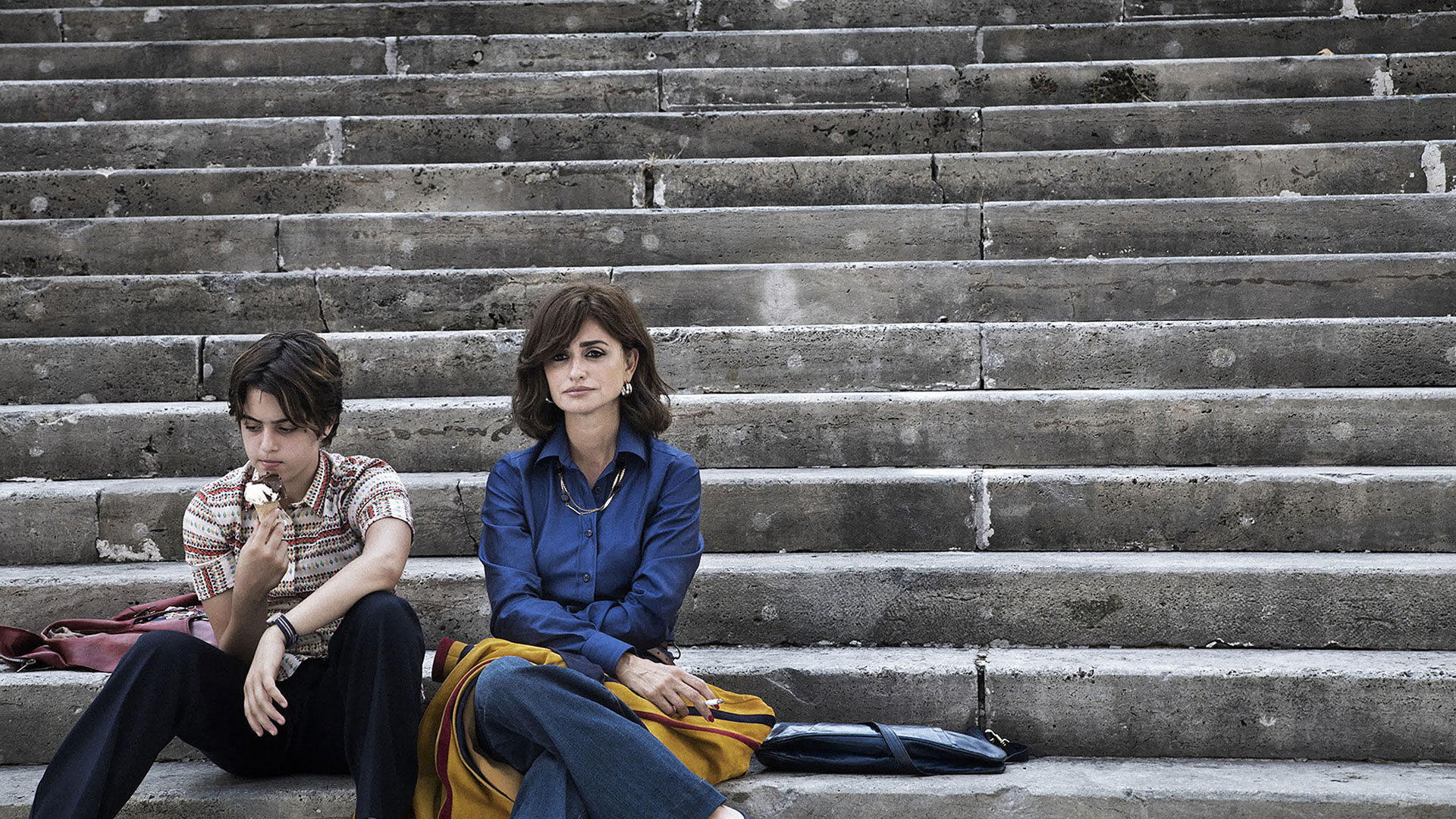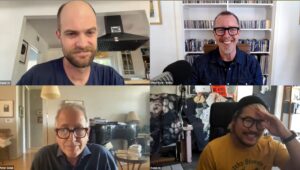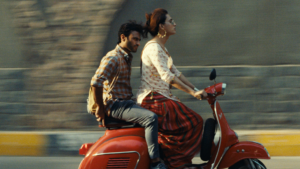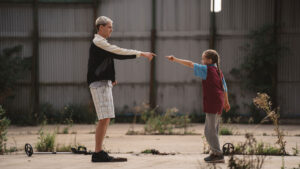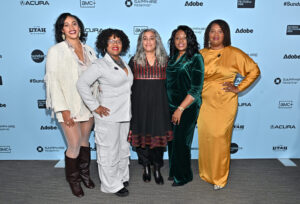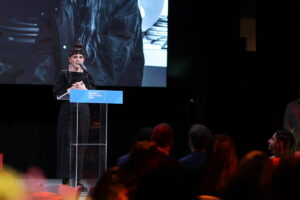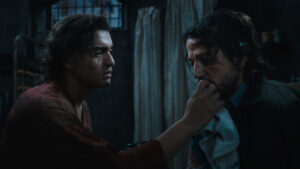One of the most exciting things about starting each year with the Sundance Film Festival is having a front-row seat for the bright future of independent filmmaking. Captivating stories, soon-to-be iconic shots, and timely cinematic conversations are all cornerstones of the 2023 Festival slate — and those are all birthed from the hearts and souls of these filmmakers. That means that this year we have the privilege of being introduced (or reintroduced for returning filmmakers) to the artists behind 111 features, 64 shorts, and four indie episodic projects.
And while we learn a lot from the art that these storytellers share with us, there’s always more we can learn about these filmmakers as people. This year we decided to get to the bottom of those artistic wells with our Backstory questionnaire!
“I always felt that my career began at Sundance,” recounts filmmaker Emanuele Crialese when asked about his history with Sundance Institute. “I managed to convince some friends and students from around the world to help me shoot my first feature-length film, Once We Were Strangers, on a super low budget around New York City. It was a huge honor when my film was accepted into the 1998 Dramatic Competition lineup of the Sundance Film Festival. To be part of this amazing, prestigious Festival was like a dream come true.” Twenty-five years later, Crialese’s career has come full circle with L’Immensità, which screened in the Spotlight section of the 2023 Sundance Film Festival.
Set in 1970s Rome, the Italian director’s fifth feature is a semi-autobiographical portrait of the uncertainties and possibilities that accompany preadolescence. Inspired by Crialese’s own experiences as a trans man, L’Immensità follows the relationships between Clara, a stifled woman stuck in an abusive marriage, and her children, especially the 13-year-old Adriana, who has adopted a new name — Andrew — and begun to identify as a boy.
Below, discover why Crialese decided to become a filmmaker, what kind of audience he hopes to reach through L’Immensità, and how his personal memories brought both inspiration and challenges to the filmmaking process.
What was the biggest inspiration behind the film?
My own memories. I felt a need to represent part of my childhood. As it often happens, you come to the realization that memory is metamorphic, changing as we age. Perception plays a great part in this. I felt the need to capture this process and chose the very specific time of being a preadolescent.
Films are lasting artistic legacies; what do you want yours to say?
Without being conscious of it, I always revisit the same issues and topics. Not only is family at the center of my stories, but I am drawn to portraying people marginalized from society, whether it be from emigration or human displacement. Exploring diversity is key to my work. What makes us acceptable or unacceptable to society? How is this line drawn? By whom? And why?
I don’t think I am a “theme” filmmaker. I feel uncomfortable with statements. I like to explore and don’t necessarily need to understand my own intention. I always try to escape my comfort zone.
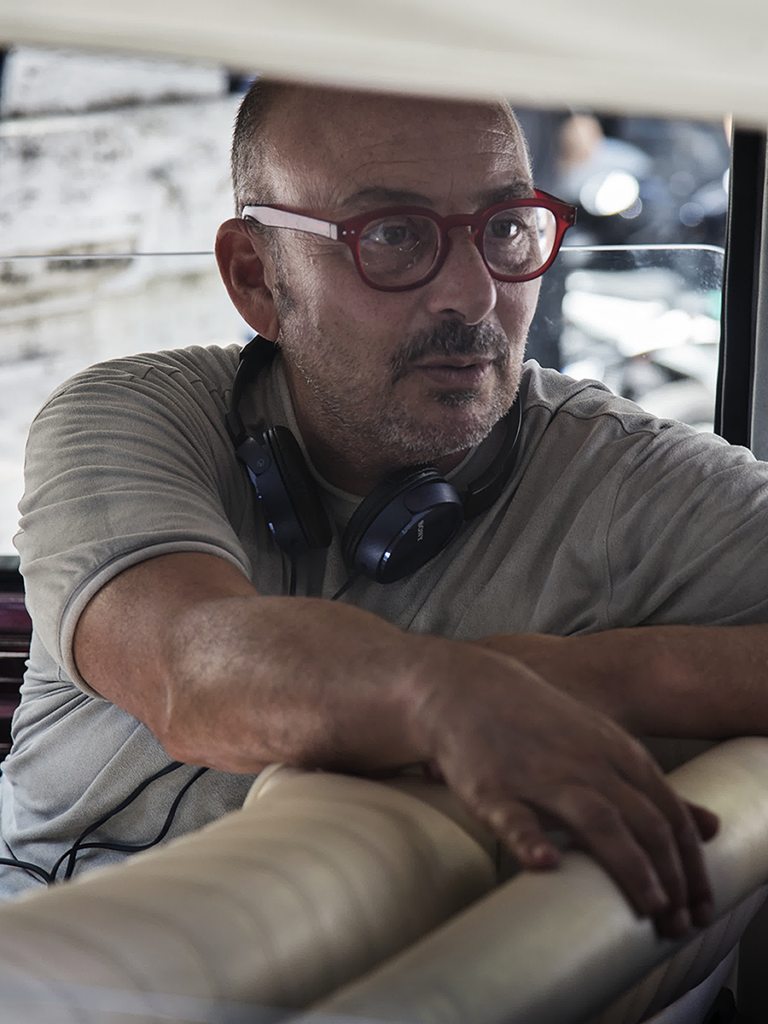
Describe who you want this film to reach.
Whomever is willing to feel more than to think. I would like for the viewer to go back to a time when we were children, when our world revolved around our parents, where their behavior had such an impact on us, everything from the way they loved to the compromises they made. I want this film to reach the part of us that is still a little kid, bursting with questions and imagination.
What was a big challenge you faced while making this film?
I had to find the right balance as a storyteller, keeping a certain distance and critical eye of my own memories that I was using for the film. I had to be aware that what I found personally important would not always also be relevant for the audience. Every day it was a meditation process between these two parts of myself.
Tell us why and how you got into filmmaking. Why do you do it?
When I was in school, I was very distracted, always daydreaming. My imagination was endless, working all the time. I could never concentrate on my schoolwork and I was ashamed of my bad grades. Then at one point I simply turned that weakness into a strength.
Why is filmmaking important to you? Why is it important to the world?
Simply put, by creating my vision of the world, I become much more in touch with human nature, with all its flaws and beauty.
If you weren’t a filmmaker, what would you be doing?
I love to cook. Maybe a chef?
What is something that all filmmakers should keep in mind in order to be better cinematic storytellers?
In my opinion, you should give the audience credit. They are smarter than we think. Always be as prepared as you can be before arriving on set. Read lots of books. Watch lots of films. Find your own unique way to see reality, then transcend it.
What’s your favorite film that has come from the Sundance Institute or Festival?
Pi by Darren Aronofsky.




